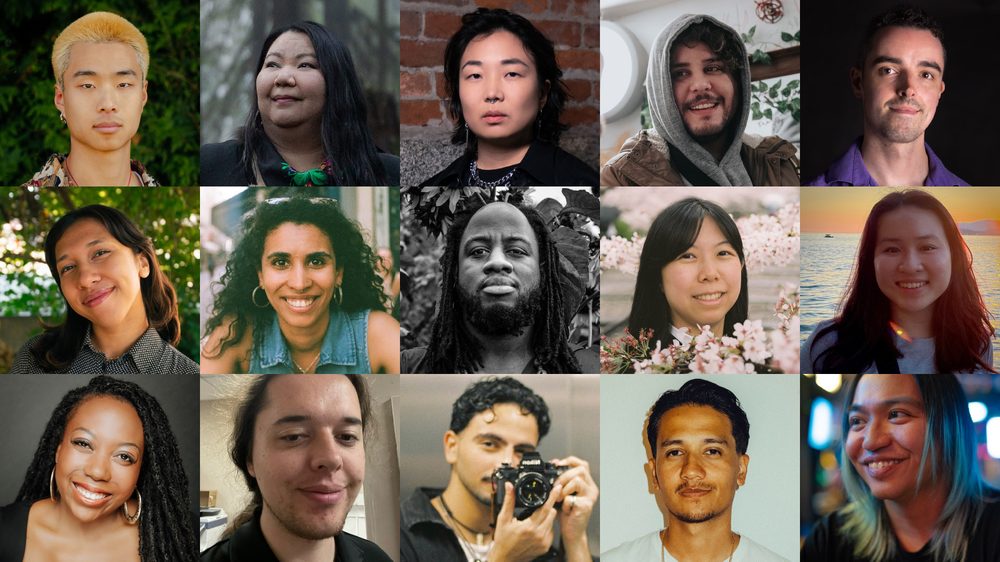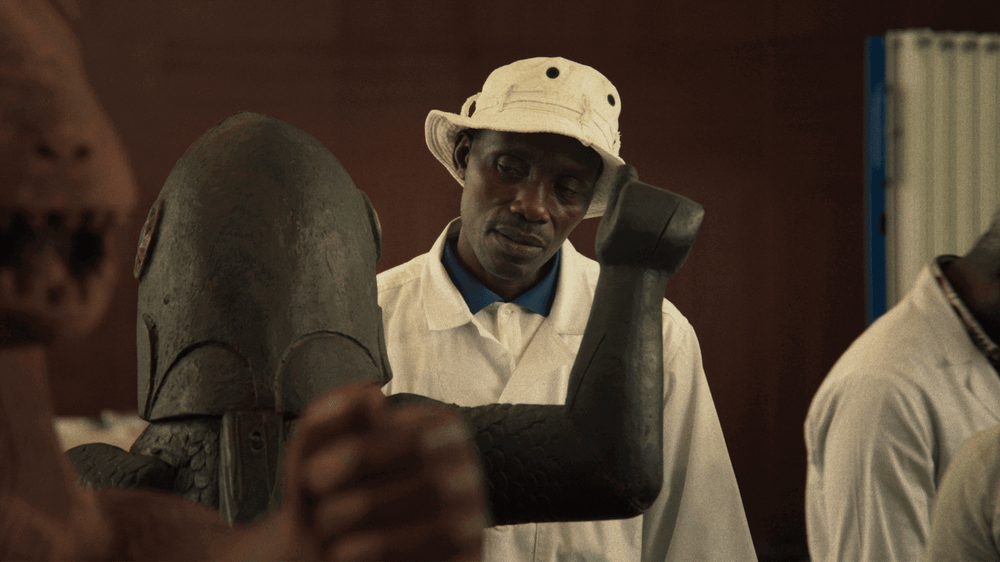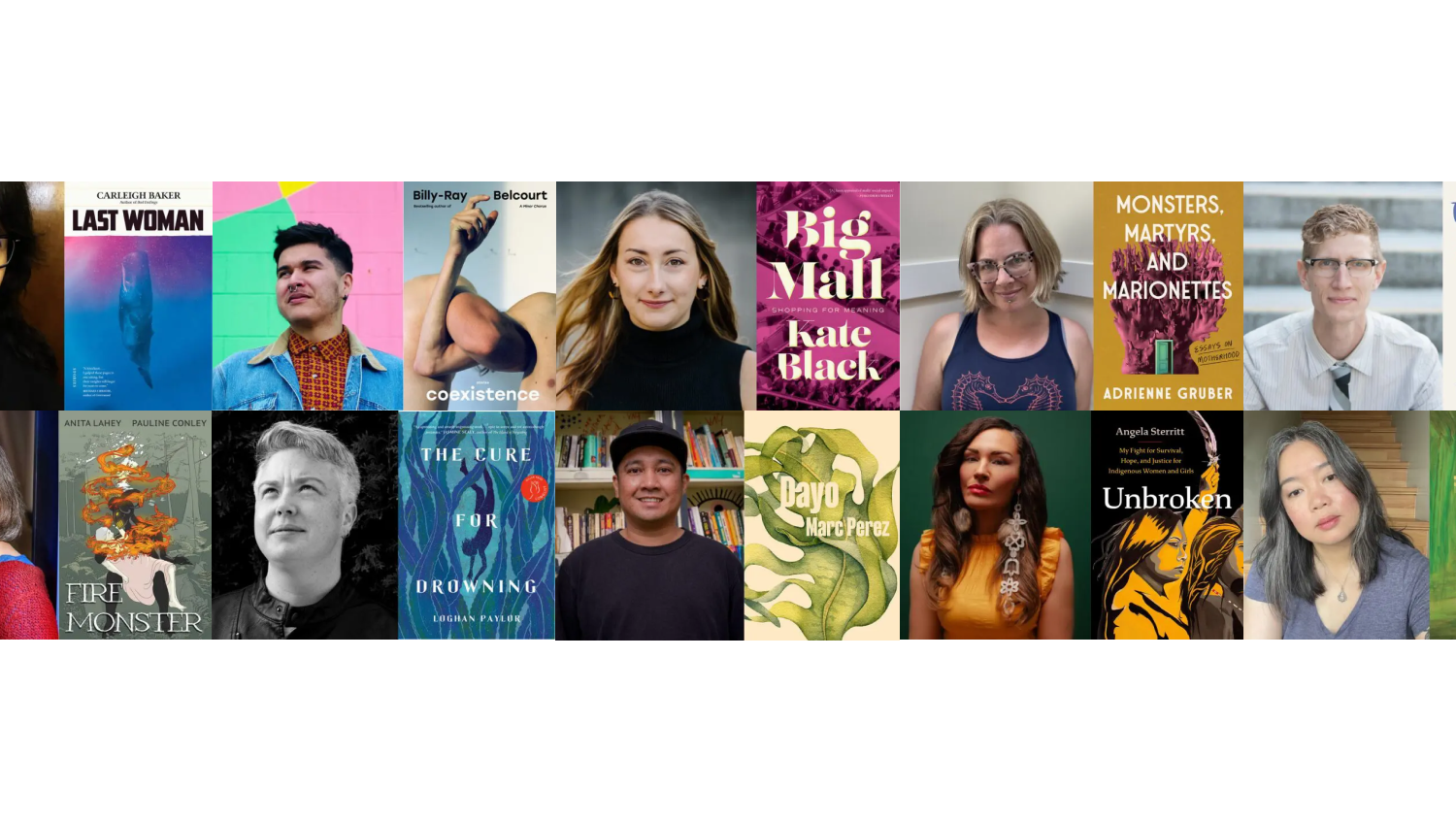The annual Vancouver International Film Festival (VIFF) came to a successful end last month, showcasing some of the best cinema from around the globe, along with one-of-a-kind live performances, talks, industry sessions, and other unique events celebrating film and film culture.
Recently,

Curtis Woloschuk. Photo by Alberto Velasco Ramos.
VIFF has a strong focus on showcasing local filmmakers. Can you share some initiatives that VIFF has implemented to support emerging talent in the Vancouver film community?
Curtis Woloschuk: Our industry days this year were all staged in the Mount Pleasant area, at Beaumont Studios. I think that was a really nice way to centre those activities around an area where a lot of production companies, a lot of VFX companies are based – it’s the epicenter of industry here in the city. Those events were open to all of our artists and industry passholders.
In addition to that, we also have some smaller programs like our Catalyst mentorship program that takes on a 15 member cohort of artists each year, all of whom have been identified as having experienced various barriers to entry to the film industry. We host group sessions for them, and we also offer one on one mentorship with established filmmakers, and we’ve seen some really great films come out of that program. Actually, Thea Loo who won the Arbutus Award for Best B.C. Film this year, was a member of that program a few years ago.
On the music side we also have the Amp program which focuses on opportunities for composers who want to learn about writing for TV and film, or those who are curious about the role of music supervisor.

Catalyst Cohort 2024
Getting a film made in 2024 is no easy feat. What are some of the key challenges facing filmmakers and producers in Vancouver today, and how is VIFF addressing these challenges?
Curtis Woloschuk: Funding obviously is a huge part of it. The composite funding that needs to happen for a lot of films, either through Arts Councils or Telefilm, Creative BC, is something we try to demystify. By having sessions on pitching or grant writing we teach people how to operate in those spaces. We also introduce them to decision makers in those spaces to make those processes and organisations feel less daunting.
VIFF serves as a platform for international films. How does this cultural exchange benefit local filmmakers and audiences in Vancouver?
Curtis Woloschuk: For this year’s festival we have cinema from over 70 nations and what this has allowed for is to draw parallels in different spaces. For example, a film like Mati Diop’s DAHOMEY which looks at the repatriation of artefacts to Africa from France, can be parallelled with a film like SO SURREAL: BEHIND THE MASKS which explores how indigenous masks were taken from nations in this part of the world, inspiring European surrealists and then returned. In both these cases, you see colonial narratives playing out in different spaces and the tremendous infinities between the efforts to repatriate those pieces and the difficult relationships in those spaces as well. I think that is a really important part of international cinema intersecting with national or regional cinema – seeing the contrast and the parallels.

DAHOMEY
Vancouver’s film scene has evolved significantly over the years, influenced by technological advancements and shifts in audience preferences. How do you perceive the changing face of filmmaking in Vancouver and Western Canada, and what are your hopes for the future of the industry in this region?
Curtis Woloschuk: In the last half decade, going back to shortly before the pandemic, we have seen more and more Vancouver-based filmmakers either premiere their work here then take it to the world stage or premiering at a festival like Berlin then bring it to VIFF after the fact. And this has meant there is much more of an awareness of the work that’s happening here. There’s been a really nice shift in terms of some organisations we work with such as Filmmable or the Collective Bunch who are really about ensuring there is a community that goes along with industry as well. What I’ve seen here is everyone is looking to lift someone up a wrung of that ladder or show them how they navigated this as well – a lot of knowledge sharing and sharing of experience in space is very important in this industry.
This article was produced by April Summers exclusively for LLB. See the original source article here.


